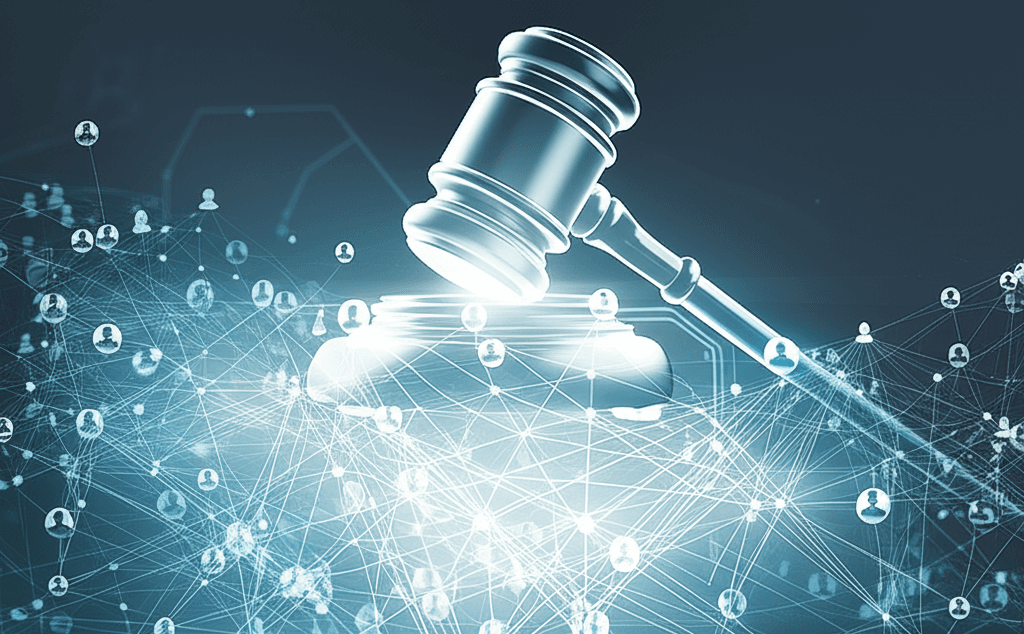Deleted No More: Court Orders OpenAI to Preserve All ChatGPT Data
Court order mandates OpenAI to indefinitely retain all user data, including deleted chats, raising major privacy concerns.
June 6, 2025

OpenAI, a prominent figure in the artificial intelligence landscape, is now mandated to retain all user data from its ChatGPT service, encompassing conversations previously deleted by users and data generated through its Application Programming Interfaces (APIs). This directive stems from a court order connected to the ongoing copyright infringement lawsuit initiated by The New York Times, compelling a significant shift in the company's data handling practices and raising substantial questions about user privacy and the operational norms within the AI sector. The order forces OpenAI to preserve vast amounts of information that it previously committed to deleting, a move the company is actively challenging while navigating the complex intersection of legal obligations, user trust, and technological capabilities.
The legal underpinning for this extensive data retention is a May 13th order issued by U.S. Magistrate Judge Ona T. Wang.[1][2][3] This ruling is a component of the broader copyright lawsuit filed in December 2023 by The New York Times, which alleges that OpenAI (along with its partner Microsoft) unlawfully utilized millions of its copyrighted news articles to train the large language models that power generative AI tools like ChatGPT.[2][4][5][6][7] The New York Times and other plaintiffs argue that the preservation of all output log data, including chats users believed were permanently erased, is crucial for their case.[2][8][9][3] They contend this data could provide evidence of how OpenAI's models might reproduce copyrighted material verbatim or enable users to bypass paywalls by generating summaries of articles.[2][3] The court agreed, with Judge Wang noting the "significant" volume of conversations that would otherwise be deleted, thereby justifying the order to "preserve and segregate all output log data that would otherwise be deleted on a going forward basis until further order of the Court".[1][2][9][3][10] This essentially freezes OpenAI's standard data destruction protocols for a wide range of user interactions.
This court order significantly alters OpenAI's established data retention policies, which previously offered users more control over their data's lifespan. For many ChatGPT users, including those on Free, Plus, Pro, and Team tiers, OpenAI's policy was to remove deleted chats from its systems within 30 days.[11][12] Similarly, data processed through its API was also subject to a 30-day retention period for abuse monitoring, after which it would typically be deleted.[1][13][14][15] The new mandate overrides these user-initiated deletions and internal deletion schedules, forcing OpenAI to hold onto this data indefinitely pending further court instructions.[1][12] However, the order does not universally apply to all OpenAI services; customers of ChatGPT Enterprise and ChatGPT Edu, as well as API users who operate under a Zero Data Retention (ZDR) agreement with OpenAI, are reportedly not impacted by this specific preservation requirement.[11][12][16] For the affected users, the indefinite retention of their conversations and API interactions, which can often contain sensitive personal or proprietary information, has sparked considerable privacy concerns.[9][17] Users who relied on deletion features for privacy or data minimization purposes now find their data stored for an unknown period, potentially increasing its exposure to legal discovery or, in a more general sense, the risks associated with prolonged data storage.[17] OpenAI has stated that the retained data is being held under a legal hold on secure systems, with access restricted to a small, audited group within its legal and security departments strictly for compliance purposes.[12][16]
OpenAI has voiced strong opposition to the court's data preservation order, characterizing it as an overreach that compromises its fundamental commitments to user privacy.[11][2][18] The company's Chief Operating Officer, Brad Lightcap, stated that the demand "fundamentally conflicts with the privacy commitments we have made to our users" and "abandons long-standing privacy norms."[11][2] CEO Sam Altman described the order as a "bad precedent" and suggested the situation accelerates the need for discussions around "AI privilege," akin to confidentiality principles in legal or medical consultations.[2][4][10] OpenAI is actively appealing the ruling, arguing that it imposes a "substantial burden" and would necessitate "significant changes to its data infrastructure."[2][3][4][10] The company also highlighted that the order could force it to act contrary to various global privacy laws and regulations, a point it had raised in its initial arguments against the preservation request.[1][8] Beyond OpenAI, this development has broader ramifications for the AI industry. It underscores the escalating legal scrutiny AI companies face regarding their data practices, particularly concerning copyrighted material used for training models. The order could set a precedent for future litigation, potentially compelling other AI firms to implement similarly broad data retention measures during legal disputes. This, in turn, may lead to increased operational costs, complexities in complying with diverse international data protection regimes like GDPR, and a potential erosion of user trust if individuals and businesses become warier of how their interactions with AI systems are stored and potentially accessed.[1][8][17] Some analysts suggest this could create a competitive disadvantage for OpenAI and prompt some users to seek alternative AI providers with more favorable data retention policies not currently encumbered by such court orders.[1]
In conclusion, the court-mandated retention of all ChatGPT user data, including deleted chats and API interactions, marks a critical juncture for OpenAI and the wider AI industry. While intended to preserve potential evidence in a high-stakes copyright lawsuit, the order thrusts user privacy into the legal spotlight and challenges OpenAI's operational autonomy and prior data handling commitments.[11][2][19] The company's ongoing appeal underscores the tension between the demands of legal discovery and the privacy expectations of millions of users.[11][18][4] The outcome of this legal battle and the endurance of this data preservation order will likely influence data governance strategies, shape legal precedents for AI-related disputes, and impact user confidence in AI technologies moving forward, forcing a re-evaluation of how data is managed, protected, and potentially exposed in an era of increasingly powerful artificial intelligence.
Sources
[3]
[5]
[6]
[10]
[11]
[12]
[13]
[16]
[18]
[19]